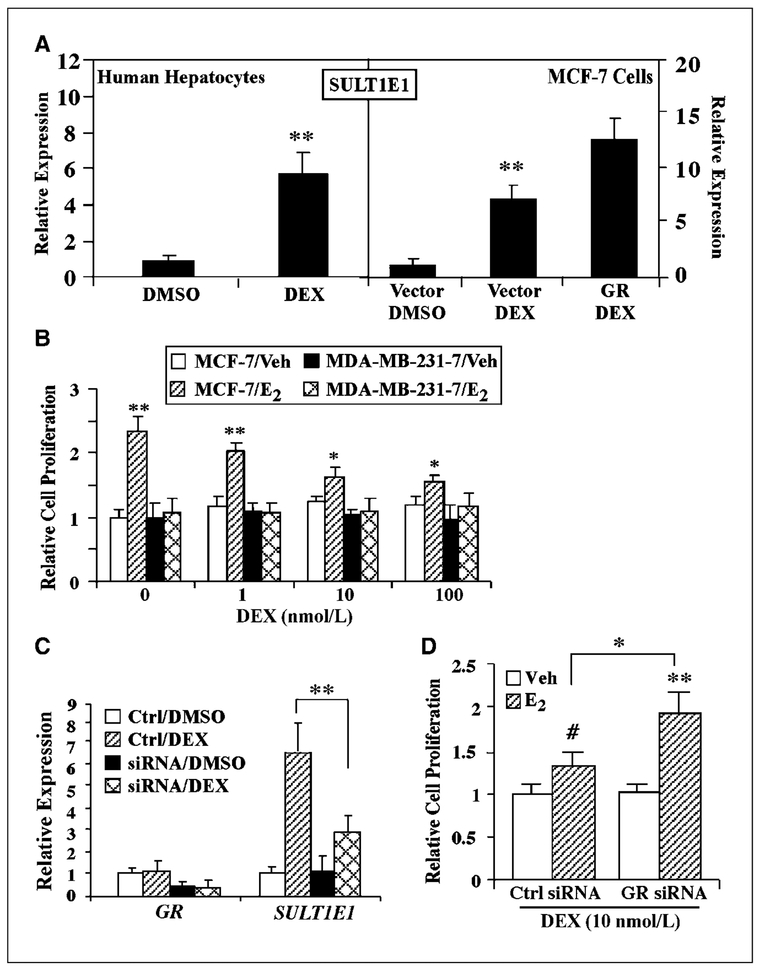Figure 3.
DEX induced SULT1E1 mRNA expression in human hepatocytes and MCF-7 cells and inhibited E2-stimulated MCF-7 cell proliferation. A, expression of SULT1E1 in primary human hepatocytes and MCF-7 cells treated with DEX (10 nmol/L) for 24 h, as shown by real-time PCR. The MCF-7 cell experiment was performed in the absence or presence of GR cotransfection. Results of the human hepatocytes represent the averages and SD from three cases of primary hepatocytes (case IDs: HH1139, 1280, 1281). **, P < 0.01. B, cotreatment with DEX inhibited E2-stimulated MCF-7 cell proliferation but had little effect on the proliferation of MDA-MB-231 cells. Cells were treated with E2 (0.1 nmol/L) in serum-free condition for 48 h before being measured for cell proliferation by BrdUrd labeling. **, P < 0.01. C, transfection of GR siRNA down-regulated GR mRNA expression and inhibited DEX-induced SULT1E1 mRNA expression in MCF-7 cells. **, P < 0.01. D, the inhibitory effect of DEX on E2-dependent MCF-7 cell proliferation was compromised in GR siRNA-transfected cells. Cell proliferation was measured by BrdUrd labeling. *, P < 0.05; **, P < 0.01; #, P > 0.05 (not significant), compared with the Veh control or the comparison is labeled. At least three replicate experiments were conducted to generate data for statistical analysis.

